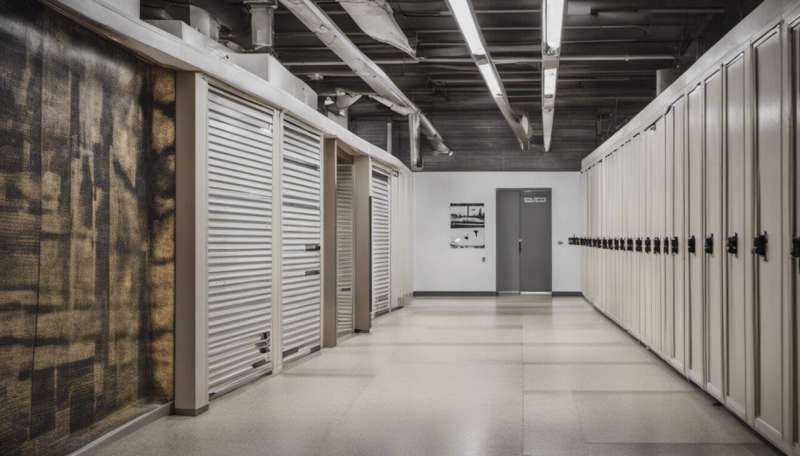The homeless need more than shelter—they need a good night's rest

It is estimated that about a third of people in the UK sleep poorly most nights, due to combination of stress, partner disturbance or lack of comfort. But, on any given night, a significant group of people have an added reason for insomnia – homelessness.
In September 2017, more than 300,000 people in Britain were homeless. More than one-third of these were children. These figures are a stark reminder of the relative poverty in which some in Britain live. Against such figures, whether the homeless might not be getting a good night's sleep may seem a somewhat trivial issue. But it's not.
There is increasing evidence that sleep is critical for physical health and mental wellbeing – and, for children, school performance. For most of us, a single night of very poor sleep will affect memory, concentration, attention and decision making. Our mood will get less positive, our energy and motivation are depleted and our resistance to disease and infection will weaken.
It struck me when asked to take part in a recent charity event, that as a sleep researcher I had never considered whether the homeless might be particularly disadvantaged. As World Sleep Day approached, I thought I should.
Most of the third of a million or so homeless live in temporary accommodation provided by the council – about 80,000 "households", three-quarters of which comprise dependent children and one or more adults. The majority of these households have their own cooking and bathroom areas, but others, in Bed & Breakfast accommodation, may have to share these facilities.
More than 20,000 adults sleep in more transient circumstances, mainly in (presumably crowded) homeless hostels – and an estimated 5,000 people are sleeping rough in any given night.
Sleep hygiene
Sleep hygiene regimes summarise advice about how to get a good night's sleep. These do vary, but all emphasise the importance of consistency during our approach to sleep – preparing to sleep at the same time, in as similar circumstances as possible. We learn what works for us – or those we care for. Our beds, bedrooms, pre-bed routines establish strong associations which, we learn, are predictive of sleeping successfully. A gradual reduction of light, temperature and increasing fatigue from the day all help our engagement with sleep.
Before most of us sleep successfully we reduce sources of stimulation and rely on familiar routines – brushing teeth, removing makeup, going to the bathroom. Ordinarily, all of these establish an unhurried, consistent and routine disengagement from our waking life. These predictable habits are accompanied by a strong biological pressure to sleep, typified by the rise in melatonin secretion, making falling asleep more likely.
But there is an inherent unpredictability when sleeping rough. Studies show that rough sleepers choose where to sleep very systematically – usually in order to maximise their personal safety. For the homeless who do not sleep rough, life is also unpredictably unsafe, and sleep is very likely to be disrupted when sleeping in close proximity to unknown others in hostels.
Of course, we all know that sleep can be easily interrupted, even when we are not feeling threatened, such as when sharing limited bed space with a snoring partner or the interruption of a crying child. And we are all familiar with the damage done to getting to sleep easily by some emotional upset – a disagreement with a loved one, worry about what happened earlier in the day, or the fear of what might happen tomorrow. When we wake in the night these upsets, worries and fears are readily available in our minds – and dwelling on them may summarily end what was probably a fretful sleep.
For the homeless, these unstable conditions frequently endanger the consistency we must recreate in order to sleep well. There may also be worries about safety and the discomfort of uncontrollable temperatures or unpredictable noise.
Transitory disruptions delay, if not prevent, falling and staying asleep. Poor nourishment and reliance on legal and illegal drugs will also profoundly affect sleep. Alcohol and nicotine reduce the quality of rest, while cocaine, cannabis and painkillers all have a detrimental effect. Generally, these effects intensify after periods of chronic use, or during withdrawal.
Despite all this, there is no formal evidence that sleep is a particular problem for the homeless. However, as a sleep scientist, I believe there is every reason to believe the homeless will sleep less – and less well. If this is true, the issue of homelessness becomes even more urgent.
For those enduring sleep challenges, physical and mental health will be worse – and the prospects for recovery and rehabilitation of the homeless will be drastically reduced. For the homeless child, the long-term prospects are likely to be very bleak indeed. Sleep is critical for the development of cognitive skills, mental health and social engagement.
But sleep can be improved – and improving sleep may be the basis of a very real change in the prospects of the homeless.
This article was originally published on The Conversation. Read the original article.![]()

















